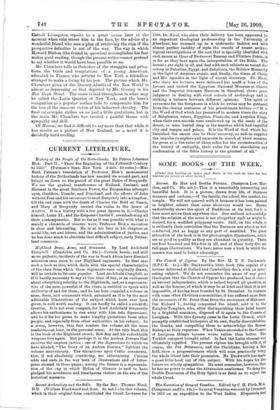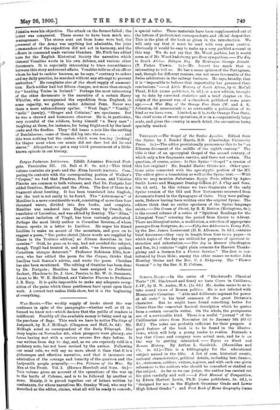The Narrative of General Venables. Edited by C. H. Firth,
M.A. (Longmans and Co. 10s.) — General Venables was sent by Cromwell in 1655 on an expedition to the West Indies. Hispaniola and jiaièa were his objective. The attack on the former failed; the latter was conquered. There seems to have been much rola- management. The stores sent out from home were bad, the personnel of the Army was anything but admirable, the joint commanders of the expedition did not act in harmony, and the offfeers in command made various blunders. Mr. Firth has edited here for the English Historical Society the narrative which General Venables wrote in his own defence, and various other documents. It is especially interesting to trace resemblances between this story and recent affairs. Venables tells us of an officer whom he had to cashier because, as he says, " contrary to orders and my daily practice, he marched without any attempt to prevent ambushes." He complains also of the short supply of ammuni- tion. Each soldier had but fifteen charges, not more than enough for "hunting Tories in Ireland." Perhaps the most interesting of the other documents is the narrative of a certain Harry Whistler, who accompanied the expedition from England, in some capacity, we gather, under Admiral Penn. Never was there a more extraordinary speller. "West Inge," " Voaidg," "nnlie" (newly), " Shuger and Cottaine," are specimens. But he was a shrewd and humorous observer. He is, in particular, very scornful of the soldiers, being himself "a Navy man" ; laughing at them, for instance, for being frightened by the land- crabs and the fireflies. They "did heare a nois like the rattling
of Bandaleares ; some of them did lep into the sea and this wose nothing but the crabes. which were loucing [looking] for thayer meat when our armie did not dare but did lie and starve." Altogether, we get a very vivid presentment of a little- known episode in our history.







































 Previous page
Previous page